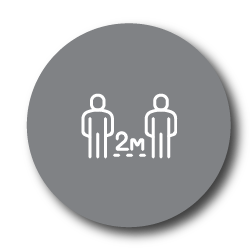COVID-19 continues to make its way through the United States and almost all other parts of the world. Its aftermath is devastating both domestic and foreign economies, leaving retail operators and workers in a frenzy. It leaves one wondering: should restrictions be loosened regarding retail business operations or made stricter?
Even though COVID-19 cases continue to rise in many parts of the world, some governments are loosening retail operation restrictions. This has resulted in intense controversy and debates among retail workers.
They are asking if it’s truly safe to return to work. And is safety improved just because the government says retail businesses can continue in operation according to certain criteria. These questions are causing an uproar within the retail industry.

Should retail workers be afraid of COVID-19?
Recent research shows that retail workers want hazard pay along with better communication about COVID-19 breakouts and paid sick leave among other things.
Why are they demanding these things?
Because they are concerned about their health. Melissa Love, a Walmart associate, says, “Associates like me are scared.” Love, also a member of the United for Respect organisation and an employee with Walmart for more than five years, spoke during a call organised among reporters. She feared a rush of shoppers over the holidays would turn stores into super-spreader sites.
Love also expressed frustration with one other corporate decision: the retailer shuttered its corporate offices until July 2021 because of the virus. Frontline workers still need to work on-site, however, and work with the public.
[Free Ebook] Consumer demand has changed how your customers buy. Learn how to best meet their needs
Her frustration is not unfounded. Washington think tank, the Brookings Institution, recently conducted an analysis and discovered over the past year that 13 of America’s largest retailers increased their profit earnings by 39%. Yet, pay for the frontline workers of those companies only increased by $1.11 an hour. That amounts to a 10% increase in wages many consider too low to cover a family’s needs.
Marc Perrone, president of the United Food and Commercial Workers International Union (UFCW), added his opinion regarding business operations and retailer workers. He says the terror coming from frontline workers stems from employees and elected leaders not doing all they can to stop the spread of this virus.
“When workers face higher risks, they should be paid more. These workers are not facing fewer hazards and are still putting themselves in harm’s way, interacting with thousands of customers a day to help ensure our families have the food we need,” says Perrone.
As more people have started to venture out thanks to relaxed restrictions, we are seeing more people contract the virus.

Should retail workers go back to work?
The CDC says COVID-19 is a respiratory illness that starts with contracting a virus called SARS-CoV-2. There are multiple symptoms that are associated with having COVID-19, with some of the most prevalent being coughing, shortness of breath, loss of taste or smell, fever, sore throat, chills, or muscle pain.
As more studies and research are conducted regarding COVID-19, treatment and diagnosis processes tend to change as well. This is why it’s so important for retailer operators to stay on top of COVID updates and to check the CDC’s website for the latest findings.
The CDC says the virus also spread primarily from person to person, especially:
- Between people in close proximity to one another (about six feet); and
- Through respiratory droplets expelled when an infected individual coughs, sneezes, or talks.
Because retail workers are in close contact with many other people, usually within six feet, this puts them at a much higher risk of contracting the virus. Whether retail workers should go back to work is not the real question to ask here. Why? Because regardless of whether they should or should not, this doesn’t change the present reality which currently allows most retail operations to continue.
If workers have been given the go-ahead to return to work, then the next best step is proper preparation, to make them safer, and to make them less afraid.

How to help retail workers who fear COVID-19
One of the best resources that retail managers can turn to when trying to help retail workers not to be afraid of COVID-19 can be found on the Occupational Safety and Health Administration (OHSA) website.
A few tips include:
- Encourage workers in any position to stay home if they feel sick;
- Make sure there are multiple permanent and portable hand-washing and sanitization stations set up through the workplace;
- Ensure all housekeeping practices and policies are being strictly followed and audit these practices regularly;
- Practice and promote social distancing, making it easy for customers and employees alike to shop and conduct work-related duties while maintaining a six-foot distance;
- Offer drive-through and deliver services;
- Implement strict hygiene policies, including making hand sanitizer available at multiple locations in a facility; and
- Provide customers and employees with masks.

How to find new retail workers amidst COVID-19
A Boston.com article, written by John Rogers, details notable information relating to COVID-19 and retailer workers.
In the article, senior vice president for government relations for the National Retail Federation, David French, talks about how over the past few months there has been a significant increase in the number of reports of abuse and violence involving retail workers.
Most of these reports centre around retail workers simply doing their jobs by asking customers to wear face masks or to comply with other guidelines meant to protect them. Yet, the workers receive backlash in the form of violence from shoppers.
Samantha Clarke is an example here. Never in her 17 years of retail sales did she expect she’d be sucker-punched and knocked to the floor by a customer. It happened after a customer was told that the last above-ground swimming pool in stock had been sold to someone else.
Situations like this have caused many retail workers to jump ship on their jobs, evaluating that the risks associated with going to work outweigh the financial gains. Because of situations like these, many retail managers are facing hiring shortages. But there are tips to follow to assist in avoiding this challenge:
- Explain in the hiring process that strict hygiene policies will be enforced;
- Make all new workers go through hygiene and safety courses before receiving their first payroll check;
- Offer incentives for practising strict hygiene practices; and
- Offer wellness practices for employees to partake in.
By showing potential new workers that you enforce safety and health rules while also providing wellness and incentives for staying healthy, you are communicating that you truly care about their health. This is one of the best ways to find new retail workers and reassure existing employees amidst COVID-19.
Conclusion
COVID-19 has changed the way retailers approach business and treat their employees. To help retailers respond to these changes, retailers and suppliers need to prioritise rapid, regular, and data-driven changes to their assortments and in-store merchandising displays.


